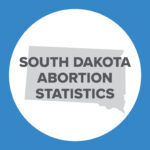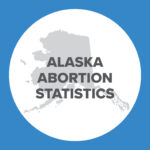New Peer-Reviewed Study Debunks Myth of Abortion as “Family Planning”
FOR IMMEDIATE RELEASE: May 10, 2021
Contact: Prudence Robertson, [email protected], 240-672-2828
Medicaid Data in 17 States That Fund Abortion With Tax Dollars Reveal Abortion for Birth-Spacing Is “Extraordinarily Rare”
Washington, D.C.— A new peer-reviewed study authored by Charlotte Lozier Institute scholars finds that in studying nearly five million Medicaid-eligible women who had at least one pregnancy, only 1% could have used abortion for child spacing. This finding rebuts claims by the American Public Health Association, among others, that abortion is “essential” for “enabling healthy spacing of pregnancies.” This is the second in a series of peer-reviewed studies from CLI showing how abortion impacts women and their families.
The study is consistent with previous CLI research showing that when a woman’s first pregnancy ends in abortion, it decreases the likelihood that any subsequent pregnancy will result in birth. Taken together, findings of the two studies suggest that abortion is not conducive to growing a family or used with any regularity for family planning.
The paper, entitled “Estimating the Period Prevalence of Publicly Funded Abortion to Space Live Births, 1999-2014” was just published online in the peer-reviewed Journal of Primary Care and Community Health. Researchers James Studnicki, John W. Fisher, Tessa Longbons, David C. Reardon, Christopher Craver, and Donna J. Harrison studied pregnancy outcomes (live birth, natural fetal loss, or induced abortion) experienced by 4,875,511 Medicaid-eligible women and girls over 13 years of age from 1999-2014 in the 17 states where state funding covers all or nearly all abortions. The study identified any possible sequence of a birth, followed by an abortion, followed by a birth (B-A-B) within up to five consecutive pregnancies.
Key findings include:
- Rarity of the Child-Spacing Pattern:
- At most, 1% of Medicaid-eligible women with at least one pregnancy followed the B-A-B pattern.
- Racial Disparity:
- Black women composed 19% of the study population but 37% of women with one or more abortions.
- No Clinically Significant Difference in Time Length Between Births:
- The average times between births, both for women with and without abortions between children, were within the recommended guidelines of 18 to 60 months. This demonstrates that healthy child- spacing intervals can be attained without resorting to abortion.
- Women with the birth-abortion-birth sequence were more likely to have undergone contraceptive counseling:
- These abortions likely did not result from a lack of access to contraception.
CLI President Charles A. “Chuck” Donovan offered the following comment on the study:
“For decades abortion-supportive academics, including those at the American Public Health Association and the American College of OB-GYNs, have asserted that abortion is necessary for women to plan happy and healthy families. This peer-reviewed research confirms the exact opposite. Policymakers would do well to look at the data and dispense with the old myth that abortion helps women ‘plan parenthood.’ For too long this line has been used to excuse abortion on-demand, through birth, funded by taxpayers. These pro-abortion policies fatten the abortion industry’s bottom line at the expense of vulnerable women and their children.”
“Despite the advocacy and promotion of abortion as essential to family planning and healthy birth spacing, the data proves it is extraordinarily rare when it is used that way. Not all women who had the B-A-B sequence intended to have birth spacing, so the number of women using abortion for that purpose is likely even smaller than 1%,” added Studnicki, lead author of the published report.
The new study is the second in a series analyzing Medicaid claims data to shed light on pregnancy outcome patterns. The first study, “Pregnancy Outcome Patterns of Medicaid Eligible Women, 1999-2014: A National Prospective Longitudinal Study,” was published online in the journal Health Services Research and Managerial Epidemiology in July 2020. Future research on this population will examine the impact of pregnancy sequencing on women’s mental and physical health outcomes.
Charlotte Lozier Institute was launched in 2011 as the education and research arm of Susan B. Anthony List. CLI is a hub for research and public policy analysis on some of the most pressing issues facing the United States and nations around the world. The Institute is named for a feminist physician known for her commitment to the sanctity of human life and equal career and educational opportunities for women. The 175th anniversary of Dr. Charlotte Denman Lozier’s birth occurred on March 15, 2019.
###
























